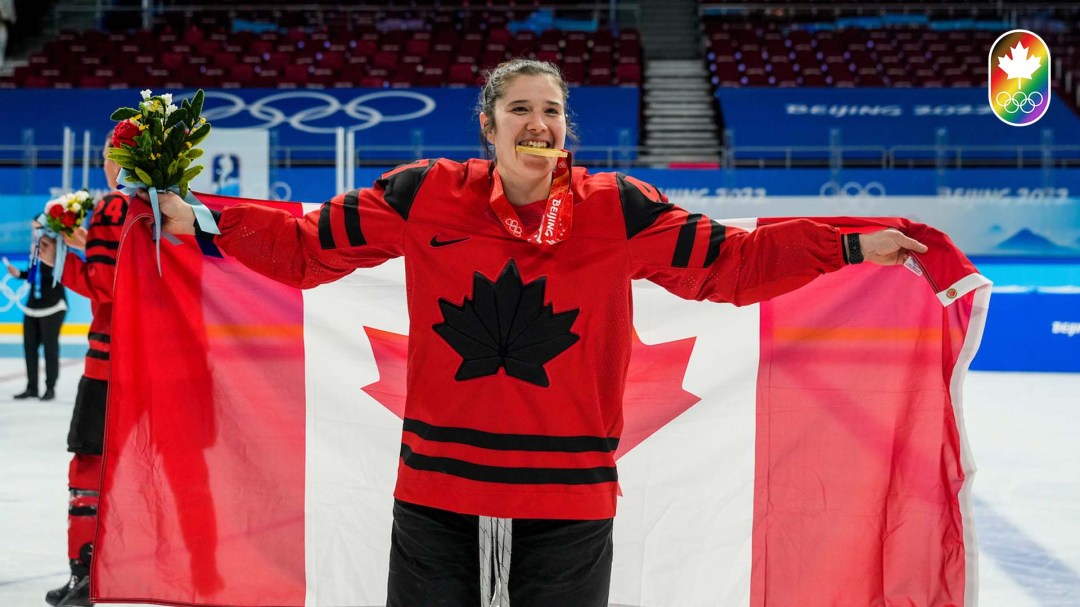Jamie Lee Rattray: A profile of perseverance
It took me a long time to get to my first Olympics.
I was 29 when I finally stepped on Olympic ice for the first time in Beijing and saw the rings everywhere. I felt out of my body a little bit, but I had just a few minutes to take it in before it was time to get to work.
A little over two weeks later, when the buzzer went off and we had won the gold medal, I still remember feeling like I had goosebumps all over my body. I didn’t really know how to react or what to do with my hands or legs.
It was quite the surreal moment.
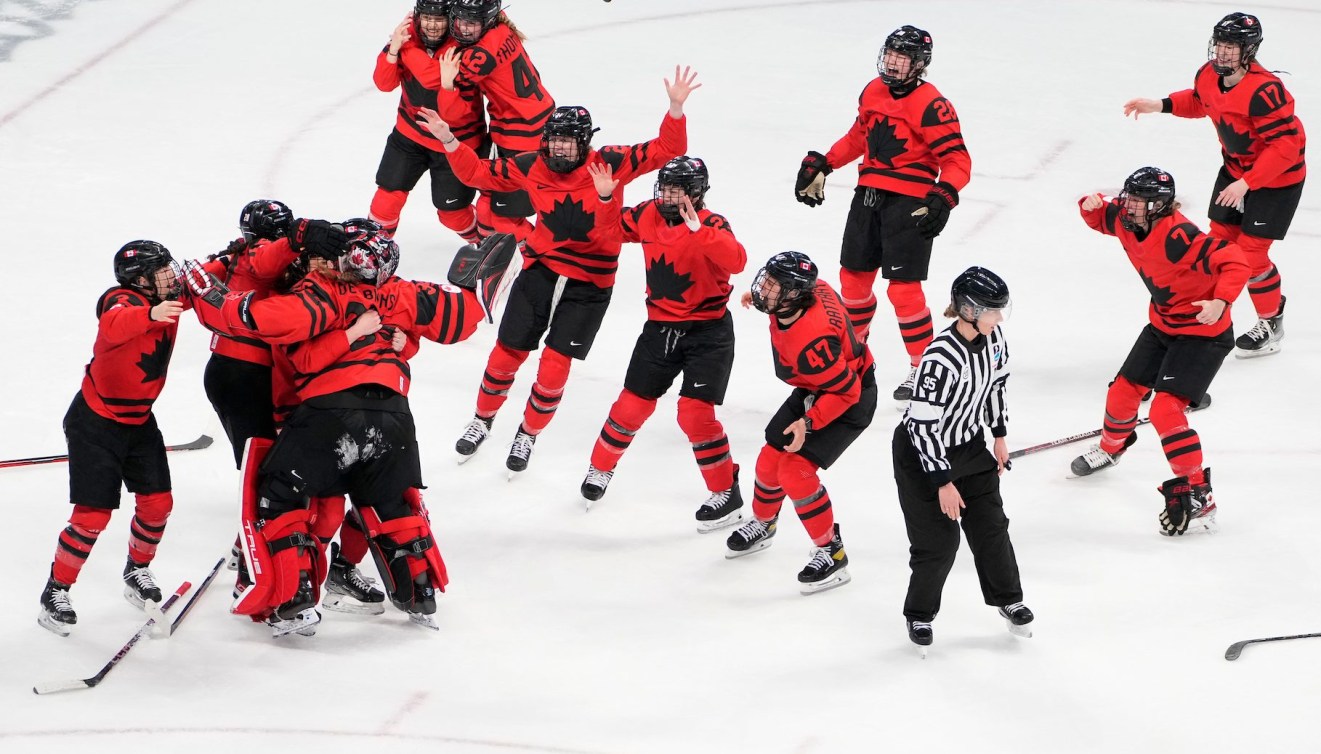
Disappointment does not define me
I had made the world championship teams in 2015 and 2016, which was great as I was still trying to find my way as a pro athlete. I didn’t play much on those teams, but it brought me a lot of experience. At the beginning of a quad your expectation is to always try and make the Olympic team in the last year.
But when it got to 2017, that year I put so much pressure on myself it became almost too much, where I wasn’t enjoying it anymore. Instead of narrowing my focus just to what I was doing, I was looking at the bigger picture and I don’t think that helped a lot with my development.
Not making that centralization roster for PyeongChang was tough and definitely one of the harder phone calls I’ve received in my life. But overall, it was probably the best thing for me.
It took me a couple of weeks to process it. I was fortunate enough to still be in the national team program and knew they had faith in me that I was still an asset. I was able to stay in Toronto and play on a great team in Markham and do some extra training on the side. I really dropped everything and made that my main focus. I said I’m gonna do one year at a time and I’m gonna keep doing it until they say no. That was my motivation.
I trained with some CFL guys that year to change it up. They brought me a lot of energy and welcomed me into their group. Off ice, I always took care of myself, doing things like eating well, but I did everything with more intent. As a younger athlete, when you do things, you could just go through the motions sometimes without realizing it. If you do it with a little more intent, over time that consistency really builds up. That’s something I needed to learn.
The first camp back, in September 2018, I was in the best shape of my life. I came in with a lot of pep in my step. We had Four Nations Cup in November and I didn’t originally make that team but was called in because of some injuries. That kick started me. I got my opportunity and was able to show my stuff. I kept pushing through the rest of the year and I made the world championship team again in 2019.
That was a big steppingstone in terms of starting the quad off right.
Creating the culture to create comfort
I think the coolest thing about our women’s Olympic hockey team was anybody could be themselves right from the start and that allowed everybody to be comfortable, but also able to play at the top of their game. If you’re feeling like you’re not comfortable in your own skin in the dressing room you’re not going to play as well as you can. So, we really tried to create a culture where everyone could be themselves and find their role.
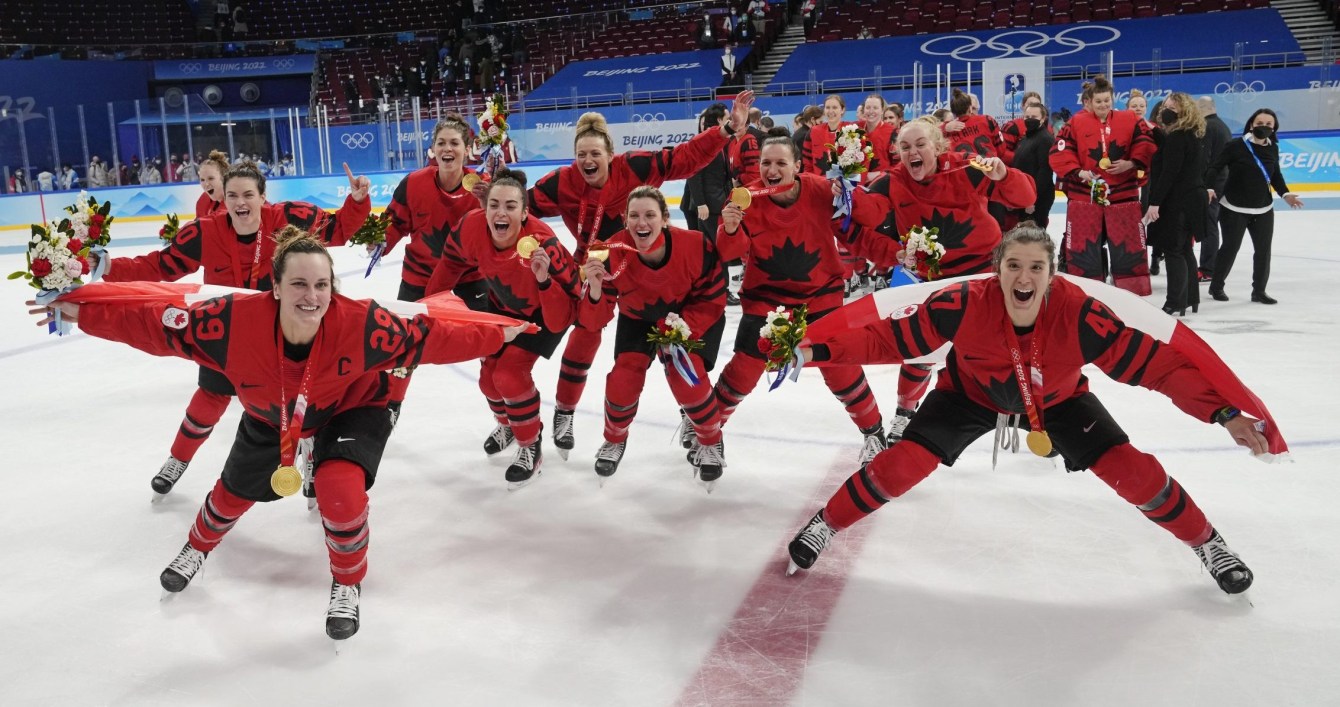
It’s not necessarily always about what you’re doing on the ice or in the gym. I think it’s important to spend that quality time with your teammates and get to know people on a different level. I think it can go a long way in how we go about supporting each other. It’s probably the best team I have ever been a part of in terms of the closeness.
That culture starts from management and then it goes to the coaching staff, but it also starts with us, the players. We gotta hold each other accountable, too. If you create an environment where you know everyone’s comfortable and able to be themselves, that’s exactly where success is coming from.
If you can see it, you can be it
I think it’s really important for young kids to have role models to look up to. I was fortunate that we have some really great ones of Indigenous backgrounds. I think it’s just important to be yourself, but also show that dreams can come true. I know it sounds so cheesy, but if you can see it, you can be it. It’s such a cliché, but it’s really the honest truth. I’m happy to be that role model for some younger youth, though I need to be open about my experiences that are different from others.
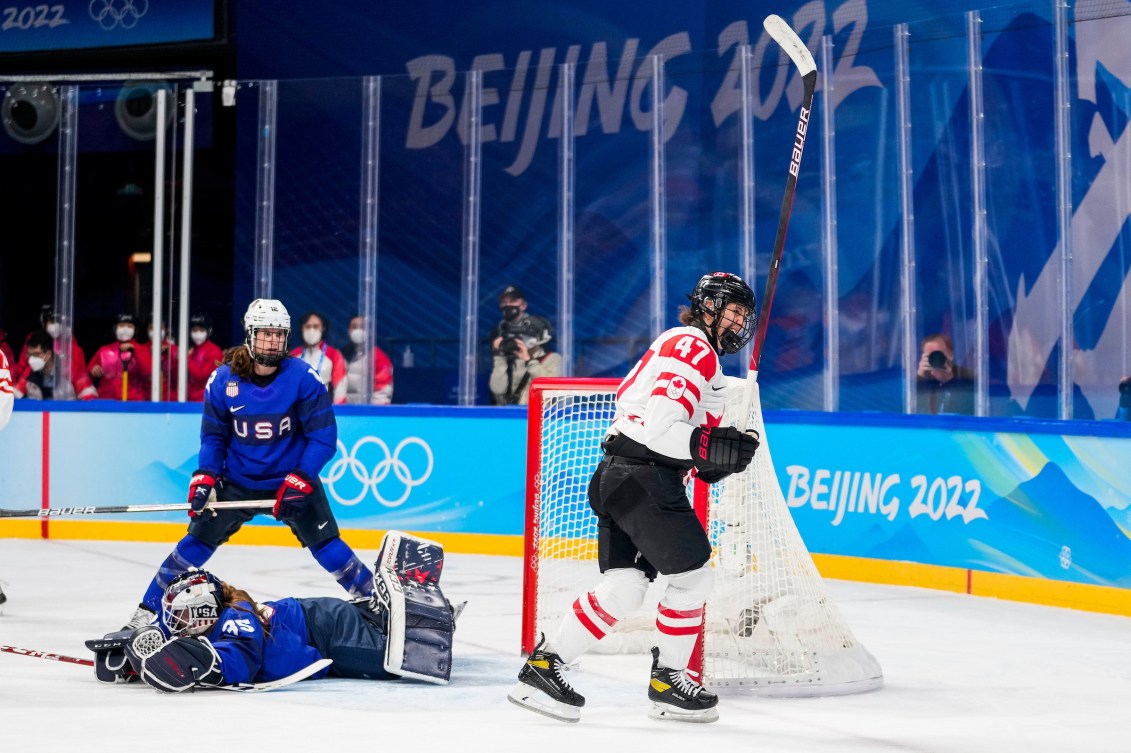
I grew up in Kanata at the west end of Ottawa. My mom is Métis but also adopted, so I don’t know a lot about my Indigenous heritage, but I’d like to learn more and be part of it more. I remember playing in the National Aboriginal Hockey Championships in 2010 and getting to know some of the girls and their upbringings that were very different than mine. I think that really helped educate me in terms of other communities that were around.
I was part of a tour around Saskatchewan after the Olympics and visited some First Nations communities there. It was such a cool experience, showing off the medal but also playing some hockey with the youth in those in those communities was really fun. The more visible we are and the more accessible we are, I think the better.
In the Saulteaux First Nation, the arena was full, like the whole community was there. We had a little all-star game with some NHL alumni and it was just great to see the community rally around. We signed a lot of autographs and met a lot of great people. I think it brought a sense of community back after COVID. We did a lot of driving that trip, but it was awesome. I’m really happy we were able to do it.
I think just one person or one story can go a long way. Visibility, especially at bigger events, is very important. Not all athletes are going to be as open as others, but if you’re comfortable with it, then go for it.
I’ve always felt comfortable being open with my personal life. Pride is a very important month, especially in Toronto, it’s a really big celebration here. The cool thing about it is the energy sucks you in. Everyone’s just happy to be there and be themselves. I think it’s really important for youth to see that. For me, when I finally came out, I felt like a weight lifted off my shoulders. So, if someone young is struggling and they can see one of their role models is open about it and comfortable about it, maybe that can help them.
I took a bit longer than some to come out. I was in college. I already knew I was gay but having that conversation with your family for a lot of people is hard. A lot of my teammates knew, but it was important for me to just get it off my chest and feel completely comfortable in my own skin.
I was pretty fortunate that no one ever gave me a hard time about it. I know some people have different experiences, but my parents were very open and welcoming and I don’t think they were too surprised.
I think it helped everything, my personal life but hockey too. I felt freer with everything that I was doing. So, it’s important to have those conversations. They can be scary for sure, but once you have them, you do feel a little weight off your shoulders.
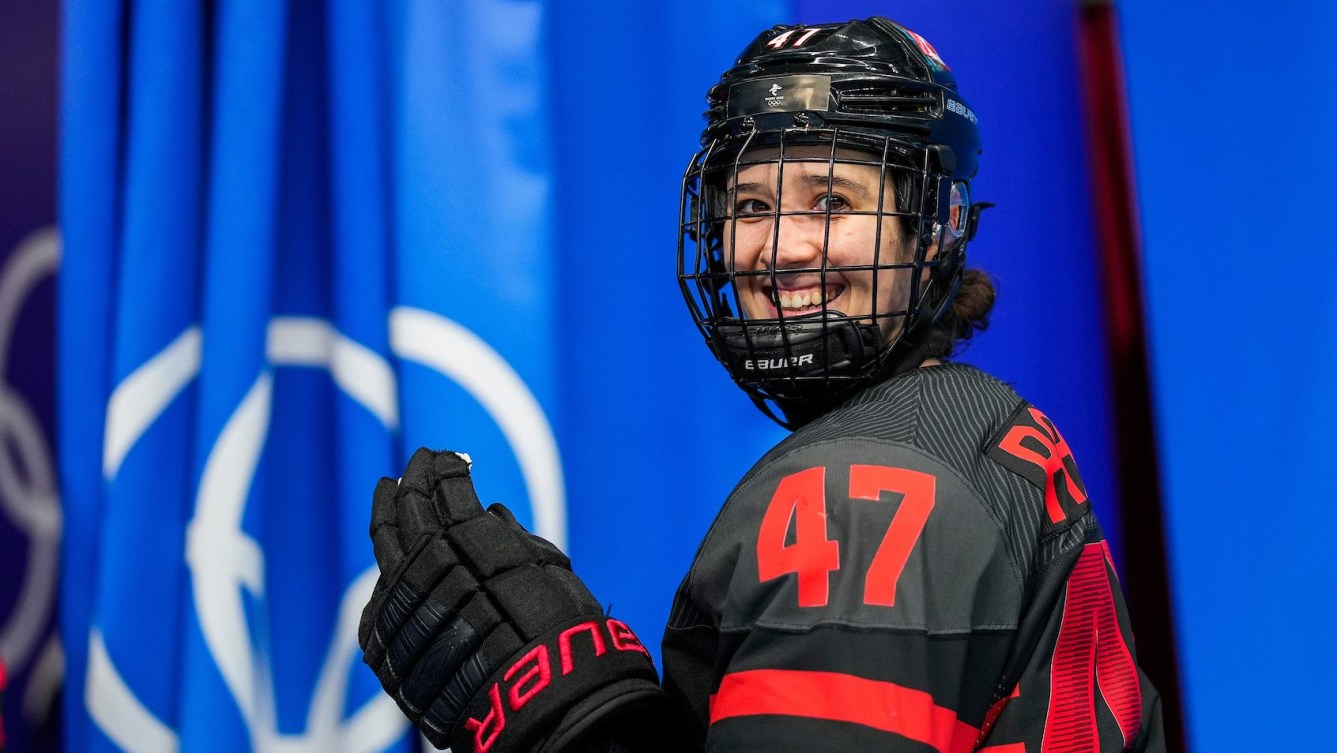
Through all the ups and downs, the not always smooth sailing of my career, I’m proud of my attitude and my approach to my craft.
I’ve never really taken my eye off the prize or wavered from what my goal was. Growing up the goal was always to make the Olympics and win the gold medal and it’s still pretty surreal to say I’ve done that.
— As told to Paula Nichols
In her Olympic debut, Jamie Lee Rattray won gold with Team Canada at the Beijing 2022 Olympic Winter Games. She recorded five goals and four assists in the tournament. That followed her four goals scored at the 2021 IIHF Women’s World Championship where she helped Team Canada win their first world title in almost a decade.

